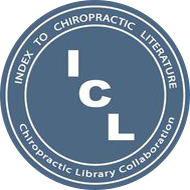Objective: Three hypotheses were tested in a chiropractic education program: (1) Collaborative topic-specific exams during a course would enhance student performance on a noncollaborative final exam administered at the end-of-term, compared to students given traditional (noncollaborative) topic-specific exams during the course. (2) Requiring reasons for answer changes during collaborative topical exams would further enhance final-exam performance. (3) There would be a differential question-type effect on the cumulative final exam, with greater improvement in comprehension question scores compared to simple recall question scores.
Methods: A total of 223 students participated in the study. Students were assigned to 1 of 2 study cohorts: (1) control – a traditional, noncollaborative, exam format; (2) collaborative exam only (CEO) – a collaborative format, not requiring answer change justification; and (3) collaborative exam with justification (CEJ) – a collaborative exam format, but requiring justification for answer changes.
Results: Contrary to expectation (hypothesis 1), there was no significant difference between control and CEO final exam scores (p = .566). However, CEJ final exam scores were statistically greater (hypothesis 2) than the control (p = .010) and CEO (p = .011) scores. There was greater collaboration benefit when answering comprehension than recall questions during topic-specific exams (p = .000), but this did not differentially influence study cohort final exam scores (p = .571, hypothesis 3).
Conclusion: We conclude that test collaboration with the requirement that students explain the reason for making answer changes is a more effective learning tool than simple collaboration that does not require answer change justification.
Author keywords: Collaboration, Educational Measurement, Chiropractic, Education
Author affiliations: Life Chiropractic College - West (United States / California / Hayward)
This abstract is reproduced with the permission of the publisher. Click on the above link for free full text.
